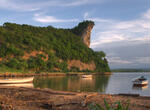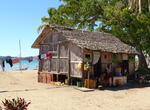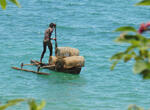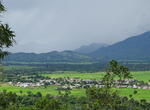The Northern Region of Madagascar - Antsiranana:
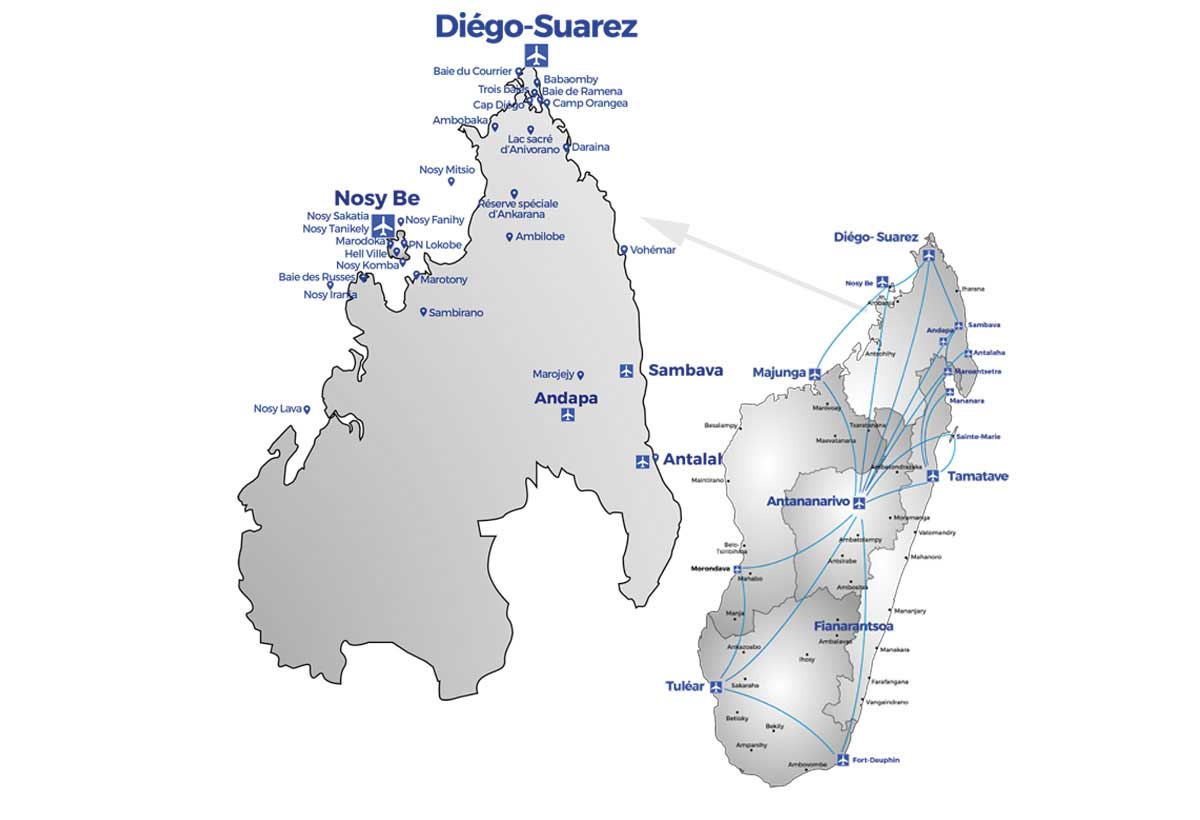
If you're looking for paradise beaches then the North region is where you'll want to be.
But there's much more to the tropical North situated closest to the equator. The North has a seven month dry season followed by intense rainfall from December to April creating a varied landscape including altitude rainforests, limestone caves and tranquil lagoons.
Nosy Be off the north west coast is a five star beach destination famed for its snorkelling and diving in warm tropical waters offering coastal boat charters, fishing and island tours. There are over 30 islands in the Nosy Be and nearby Nosy Mitsio archipelagos with the islands of Ile Nosy Iranja, Tsarabanjina and Nosy Komba (also known as 'Lemur Island') offering unspoilt white beaches that are second to none. And tourist friendly lemurs.
Bordered by the rugged Tsaratanana Massif mountain range with its highest point Maromokotro at 2,876m, there are other spectacular sights in the North including the lakes and waterfalls of the Montagne d'Ambre (Amber Mountain National Park) forest, and the Tsingy (limestone formations) with a network of grottos, caves and underground rivers in the Ankarana Special Reserve.
The coastline is deeply indented featuring the natural harbor at Antsiranana (Diégo Suarez). At Antalaha in the Sava region, dhows, traditional sailing vessels used originally for trading by the Arabic storekeepers who frequented this part of Madagascar are still used and constructed in the small shipyard.
The Northern region has a fascinating culture via its multi-ethnic population, a mix that includes Muslims, descendants of African slaves, Indian traders, Arabic sailors and French plus the local Antakarana.
The North subdivides into the Sava area consisting of Sambava, Vohémar, Andapa and Antalaha and also the Diana region comprising Diégo, Ambilobe, Nosy-be, Ambanja.
MAJOR TOWNS: Antalaha, Maroantsetra, Sambava, Vohémar, Andapa, Nosy Be, Diego Suarez (Antsiranana), Ambilobe, Ambanja, Nosy-Be
NATIONAL PARKS AND RESERVES: Ankarana Reserve, Montagne d'Ambre, Lokobe Reserve, Nosy Komba, Nosy Mangabe, Nosy Tanikely., Nosy Hara, Marojejy Reserve, Anjanaharibe Reserve.
Prime Magazine Featured destinations in North Madagascar
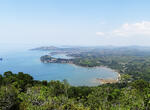
Marodoka, which means 'the ancient village' in Swahili is a beautiful tourist destination in Nosy Be. The first village of the island dating from 800 A.D. with exceptional architectural remains.....
Read more
Marodoka, qui signifie “l’ancien village” en swahilie est aujourd’hui une belle destination touristique de Nosy Be.Le premier village de l'île datant de l'an 800 après J.C. avec des vestiges architecturaux exceptionnels.....
Read more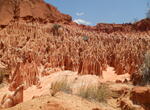
Like the intruders in the midst of a landscape of grassy savannahs, the Tsingy Rouges are an inescapable attraction of the north of Madagascar. This natural spectacle of all beauty invites you to an escape out of time and particularly rich in emotions.....
Read more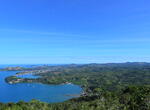
The black lemur or l’Eulemur macaco, an emblematic species endemic to the island of Nosy Be invites you to visit its natural habitat: the national park of Lokobe.....
Read more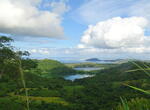
The Mont Passot, which Nosy Be inhabitant also call "Bongo Pisa", is a volcanic mountain located about thirty kilometers north of Hell Ville. This popular site for tourists is a place steeped in history as well as an exceptional shelter for an extraordinarily rich fauna and flora. We invite you to discover this little paradise, perfectly preserved.....
Read more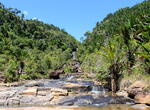
For an unforgettable holiday, make a stopover in the village of Ambobaka. Located in the heart of the Diana region in the North of Madagascar, this village is a paradise for researchers and scientists, but also for trekking lovers. Put on your equipment and get ready for a breathtaking adventure.....
Read more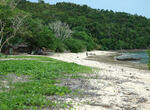
The Bay of Russians is a small island located between Nosy Iranja and Nosy-Be, formerly called Bay of Ambavatoby. This is not a simple holiday resort for vacationers in search of change of scenery. This place is also a witness of the Russian fleet’s journey in Madagascar in 1905 during the moment of the Russo-Japanese war.....
Read more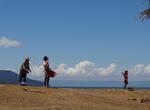
The peaceful city of Antalaha was once inhabited by fishermen. Everything changed at the end of the 19th century when vanilla, a variety of orchid with vines, was introduced in 1905 in the Sava region – composed of Sambava, Antalaha, Vohémar and Antalaha - in the northeast of the island.....
Read more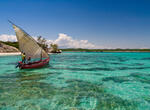
If you have a passion for water sports, we advise you to spend your next vacation in Babaomby. This place located on the northern tip of Madagascar in Diego-Suarez, between the Mozambique Channel and the Indian Ocean, offers you the best kitesurfing and windsurfing spots on the island.....
Read more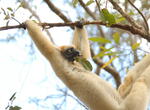
For your next holiday destination, opt for Daraina, a small coastal town located in Vohémar, in the north of Madagascar. Dating, nature, beaches, you will all have what you will need to live a unique holiday.....
Read more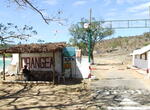
Orangea, this paradise site of Diégo-Suarez housed in the 19th century the "port aux Boutres" or "Port des Arabes" or "Port des Antalaotra". These Islamic seafarers from Mayotte or Zanzibar, who mastered the Swahili dialect, supplied the people of the north of the island with manufactured goods and weapons. They also sometimes traded slaves.....
Read more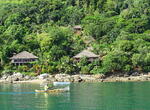
Antotorogno is one location deriving its great value in the tourism field in Madagascar passing through Nosy Komba; the villagers still practice harpoon fishing , and let’s not forget the various lemurs that overrun this district. Known for its surrounding islands, in Nosy Be, go to Nosy Komba which houses Antotorogno village: the fishing village.....
Read more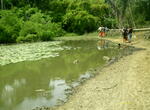
Ambanja, an area conducive to the cultivation of cocoa, vanilla, coffee and pepper, is located in the north-west of Madagascar towards Diégo Suarez. It is crossed by the famous Sambirano river. Andranomandevy is a village located about 30 km from Ambanja.....
Read more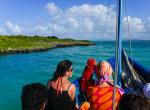
The Emerald Sea is a lagoon in Madagascar located at the entrance to the bay of Diego-Suarez, in the far north of the country. It is also called the wonder of Madagascar.....
Read more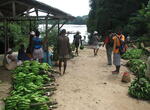
North of the city of Sambava, 17 kms on the road to Vohémar, is the 140km long Bemarivo River bordered by fields of exotic products and spices, including vanilla. "Hangitry Bemarivo" translates to "Scent of Bemarivo".....
Read more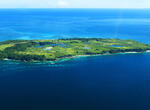
Located in the UNESCO marine biosphere reserve of Sahamalaza, about 100 km south of Nosy Be, accessible by boat and private plane, is Nosy Saba which means "Life is sweet". This 130 hectare island naturally offers everything that nature and sea lovers can expect.....
Read more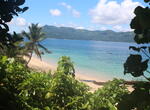
Anjiabe, is a unique village that deserves a special detour during your trip in the North of Madagascar. Located 20 minutes by boat from the island of Nosy Be and south of Nosy Komba, this village offers a timeless setting with authentic landscapes, rich in local agriculture.....
Read more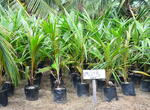
If you arrive on Sambava by plane, you will not miss to fly over the huge coconut plantations of SOAVOANIO before landing at the airport of the city. Indeed, the industrial coconut grove of SOAVOANIO Company, covers a total surface of 5000 hectares.....
Read more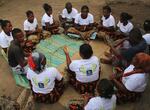
This village in the Sambirano Valley owes its name to the "javy"(aquatic plant), located on the lake and which navigate there by following the current. It is located in the northwestern part of the Big Island, in the DIANA region near Ambanja.....
Read more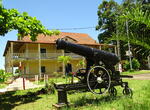
The history of Nosy Be dates back to the beginning of the arrival of Arabs on the island in the 900s. At this time a city called Mahilaka was created which created the first trading post of the island. These first inhabitants lived on the export of copal, iron, chlorite, rock crystal, gold and slaves, a maritime connection with a large part of the countries of the Indian Ocean.....
Read more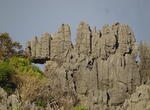
If you go northwest of the island, make a stopover at Ambilobe. 22 km from this city is one of the most outstanding sites of the Diana region: the Tsingy of Mahaloka. Discover the remains of its caves and the history behind them.....
Read more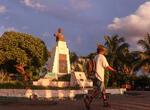
Diego is the capital of northern Madagascar. It is 1093 kilometres from the country's capital, Antananarivo. Former French garrison, it carries in its streets with evocative names, traces of its military past.....
Read more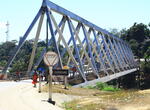
The Sambirano River, located in Ambanja, north-west of Madagascar, has its source in the Tsaratanàna massif and flows to the bay of Ampasindava. It is possible to go down it, sometimes on foot, sometimes in a canoe. A sporting and meditative adventure where the exuberance of vegetation is omnipresent.....
Read more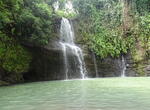
Madagascar is full of relaxing places and those of the north are the most striking. It is in an unsuspected part of the island, that is located the Androadroatra waterfall, a location little known to the Malagasy people. 621 kilometres separate it from Antananarivo, the capital of the country.....
Read more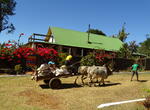
An unavoidable stopping point, Joffre Ville is a city nicknamed "ghost town" as it seems to be frozen in time. Despite the dazzling development of the north of the island, here, time seems to have stopped.....
Read more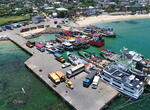
Antalaha, the city of vanilla, is the pivotal place of the SAVA region in the north of Madagascar. Its name derives from the era of sailing-ships which implored (mitalaho) passage through the barrier of reefs offshore. Here Madagascans have built an exceptional site, that combines the environmental, education and tourism aspects: welcome to "Macolline"!.....
Read more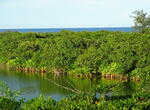
The Green Lake or "sacred lake of Andranotsara" is located seven kilometres south of the city of Vohémar, northeast of Madagascar. It is a rich lake side fauna and flora but also for the legends it conveys. Two good reasons to go and discover this site.....
Read more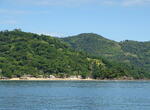
Ankify is the gateway to the idyllic town of Nosy Be. It is located 18 kilometres from the city of Ambanja, 838 kilometres from the capital. It is the seaside resort where economic and tourist actors meet, who travel to or from Nosy Be.....
Read more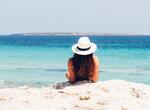
Madagascar abounds in magnificent landscapes. The Ambato peninsula, located in the northwest of the Big Island and nestled at 26 meters above sea level, is an example. The arrival is pleasant, the roads and bridges are well maintained and all around the peninsula, punctuated by the sea, are settled the typically Malagasy fishing villages. The primitive way of life of the population, recalls the beauty of simplicity out of the tumults of the city. Calmness is the watchword.....
Read more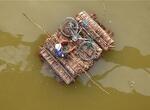
Leading us to the province of Diégo-Suarez in the North of Madagascar (DIANA region), this tour allows to discover the mangrove of the West coast of Madagascar. This mangrove plays a vital role in protecting the land against erosion and at the same time serves as a nursery for many marine species.....
Read more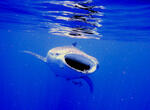
The Nosy Be Archipelago is well-known for its beautiful islands, unique beaches and relaxed lifestyle. This “Pearl of the Indian Ocean” is also a good position to observe the marine megafauna: Humpback whales, Omura whales, lots of dolphins, whale sharks, Manta and Mobula rays and other sea turtles appear to value these conditions of rich, calm waters, to live, feed and breed.....
Read more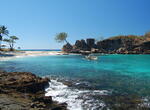
Nobody has yet experienced the paradise, but there surely might be similarities to Nosy Tsarabanjina, a beautiful isolated island in the middle of the ocean, located off the north-west of Madagascar. It is part of a myriad of small islettes that form the Archipelago Mitsio and is considered the most beautiful of them all.....
Read more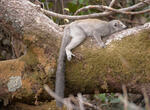
Taking the RN6 to the north of Madagascar will lead us to the village Ambondromifehy. More precisely, it is located 43 kilometers from Ambilobe, in the rural district of Anivorano North. With its 3000 inhabitants, Ambondromifehy represents the typical Malagasy life-style with a plenty of straw houses, small shops everywhere in-between, and just a few concrete buildings.....
Read more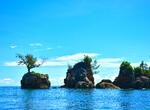
About 10 km off the west coast of Madagascar, 50 km south of the international airport of Nosy be, accessible by boat and private plane, there is Nosy Saba which literally means "Life is Sweet". The natural environment around this island of 130 hectares offers everything it takes, to fall in love with the beaches, the sea und its underwater space.....
Read more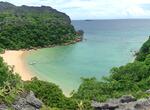
Nosy Hara is an island located north-west of Madagascar, in the DIANA Region. It is best known as a marine park and considered by visitors to be a true paradise. All islands of the Nosy Hara archipelago are made of limestone, called Tsingy.....
Read more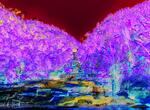
Since the waterfall was discovered by priests, it was named the "Cascade of Good Fathers". It is one of the most beautiful waterfalls on the Big Island, with a difference in altitude of more than 80 metres shaped like a succession of natural bathtubs. Do not hesitate to bathe here. No wonder it is one of the most visited sites in the northern part of Madagascar.....
Read more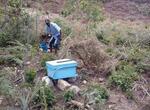
Ambatobe Mamy Antely (great honey rock), is – as the name suggests – a great rock well known for its natural and pure honey. It is located 4km from the centre of Andapa, in the SAVA region, an area rich in agriculture. Rice growing, vanilla fields, coffee, fruit and vegetable plantations, fish farming and beekeeping make up the daily life of the villagers.....
Read more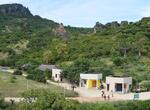
At this unique natural pilgrimage site, come and discover Malagasy fauna and flora in an easy accessible way via the “Baobab Valley Tour". The vegetation is lush. The forests are abundant and contain an impressive number of local and regional endemic species.....
Read more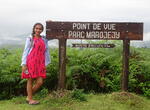
Its wild and rugged character as well as its exceptional biodiversity, make Marojejy National Park a paradise for mountain lovers and an exceptional landmark for the most exigent naturalists. Described as "a wonder of nature", this UNESCO World Heritage site is found in the northeast of Madagascar.....
Read more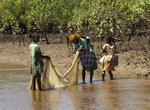
Ambatozavavy is a village of fishermen and farmers, located north-east of Nosy Be, 11km from Hell Ville. En route to Ampasipohy and a visit Lokobe Park, this village is mainly known for the stone that gave it its name: "Ambatozavavy", a combination of "Vato" (stone or rock) and "zavavy" (woman). Therefore, the name of the village would mean "Female Rock".....
Read more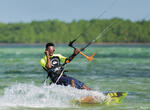
Sakalava Bay is one of Madagascar's most beautiful wind and surf spots, known in the Indian Ocean and around the world. It is also an ideal place to learn kitesurfing.....
Read more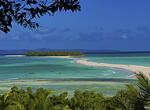
A crystal clear sea, ideal for diving, tropical vegetation, a white sandy beach and multi-coloured shells. This is Nosy Iranja, a piece of paradise.....
Read more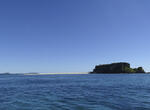
A trip to Nosy Fanihy, an uninhabited island setting with an atmosphere of total peace and calm, is like a real life Robinson Crusoe experience.....
Read more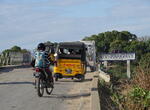
For those wishing to find out more about sugar-cane as a crop in Madagascar a visit to the town of Ambilobe is a must. Ambilobe is a well-known for its rum production, a side-product of sugarcane, to be consumed in moderation.
Read moreFrom the peak of the Montagne d’Ambre, you will have a stunning panoramic view over the northern tip of Madagascar, with the Mozambique Channel to the left and the Indian Ocean to the right.....
Read more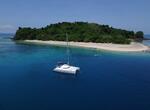
Discover the four islands of the Radama archipelago where you’ll find deserted beaches, clear lagoons and exotic fish.....
Read more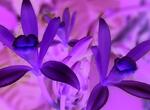
A trip through Madagascar's vanilla trail is an exceptional adventure. The point of departure is Amboangimbe, an extremely well-known village in the north of the island. This region has Madagascar’s largest area of land devoted to this high-quality export crop, well known throughout the world.....
Read more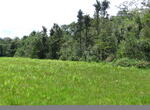
Exploring a stunning landscape with the impression that no one else has ever set foot there before you is still possible in Madagascar. Bemanevika is a region where you will be constantly delighted and amazed. Nestling at the heart of a volcanic region, Bemanevika has a unique ecosystem, with forests, savannah grassland, lakes, bogs and marshes, forming an extraordinary natural environment.....
Read more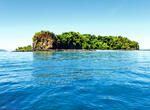
The island of Nosy Tanihely, which literally means ‘small land’, has been blessed with enchanting scenery, so much so that you will soon forget its small size. Its reputation is due to its magnificent soft white sandy beaches, where you can sunbathe or simply relax. But behind this dream setting, there lies a wealth of other extraordinary treasures. Welcome to the National Marine Reserve of Nosy Tanikely, one of Madagascar’s marine hot spot!.....
Read more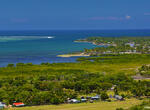
The precious stones are the objects of desire and the fragrance of vanilla wafts above the streets of the town. Vohémar is a destination that promises a peaceful stay in a tropical atmosphere.....
Read more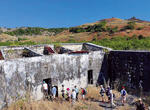
Built in 1911 between 1963 and 2005 in a heavenly spot, the penitentiary of Nosy Lava used to house an average of 1600 convicts. Since it was closed down, the former prison has been welcoming tourists, who come to enjoy the extraordinary beauty of the island and explore its three exotic little villages.....
Read more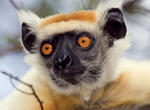
It is no secret that Madagascar harbours areas of extraordinary natural wealth. The new protected area of Loky Manambato is one of these: a true treasure trove for you to discover.....
Read more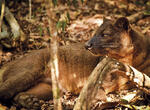
The Special Nature Reserve of Marotandrano presents an exceptional concentration of habitats and rare species. It covers an area of 42.200 hectares, with a high degree of endemicity and a stunning number of beautiful animals and plants.....
Read more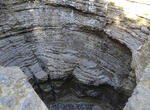
Made-to-measure for lovers of unspoilt natural surroundings and anyone hankering for adventure, the Special Reserve of Ankarana promises a unique and unforgettable experience.....
Read more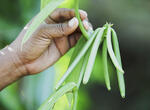
Sambava is a town that leaves nobody indifferent. The naturally-friendly population, the specific character of its environmental resources including the floating fragrance of vanilla and the unusual architecture of its streets give it an undeniable charm.....
Read more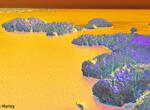
Baobab trees growing on tiny islands, giant mushroom shaped rocks and beautiful coral are just some of the attractions of Madagascar's 'Bay of Halong'. The Bay of Moramba, with its strange sandstone rock formations, is nicknamed Madagascar's 'Bay of Halong’. In this extraordinarily beautiful spot, you will find baobab trees growing on tiny islands that look out over the pristine waters of the bay. At low tide, you can marvel at the giant mushroom-shaped rocks with their base eroded away, defying the laws of physics. You wonder how they manage to remain standing.....
Read more
